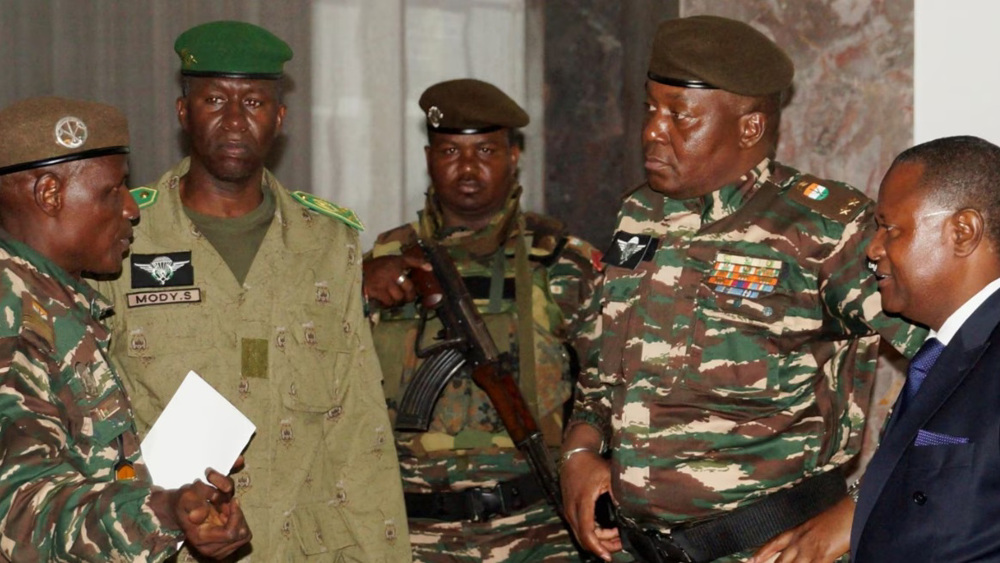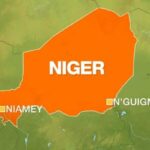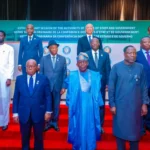The sudden military coup in the Republic of Niger, which culminated in the swift ousting of President Mohamed Bazoum, has sent reverberations across Africa and the wider global community. Nigeria, tied to Niger through shared culture, history and geopolitical complexities, finds itself faced with the possibility of intervention. Yet, this intervention must shun the language of military confrontation or hasty sanctions, opting instead for the subtle art of diplomacy and dialogue.
A fundamental cornerstone of Nigeria’s foreign policy since independence has been the absence of aggression towards our neighbours. There is a strong foundation of peace that has been built over the years, and I remain ultra-optimistic that Nigeria will uphold this tradition, refraining from entering into war with any African country. This shared history and vision for a peaceful Africa demand that we eschew direct military confrontation in favour of a path grounded in peaceful negotiations and mutual understanding.
An immediate appeal must be made to the Niger coup leaders to ensure the safety, security, and welfare of President Bazoum and his family. The respect for basic human rights cannot be traded away in the face of political upheaval. The sanctity of these rights must be upheld, regardless of the intensity of the power struggle. Reflecting on the recent actions of both nations, it appears the federal government of Nigeria and the military head of state in Niger were too quick in severing diplomatic ties. This abrupt breakdown of relations could exacerbate an already tense situation, denying us the vital diplomatic channels needed for dialogue and reconciliation.
As we deliberate on the potential role of the Economic Community of West African States (ECOWAS), led by Nigeria, it’s important to ask: What benefits would an invasion of Niger bring us? War is an unpredictable beast, and its effects often far outlast the battles themselves. It brings in its wake devastation, loss, and a legacy of pain that can span generations. Is this a path we are willing to tread? For Nigeria to launch a military attack on Niger Republic in response to the coup would not be favourable for our citizens living along the border areas.
It is important to note there are nearly 200,000 Nigerians from Abadam, Guzamala and Mobbar local government areas in Borno State, who were displaced by Boko Haram, and are currently residing comfortably in Diffa, Bosso, Njegeme, and other places in Niger. They have been given full privileges and protection there. If we were to attack Niger, what would become of the thousands of Nigerians living in Niger? Such an action could have dire consequences for them.
I would urge President Tinubu to tread cautiously. The stakes are high, and the decisions made today will echo into our future. What we need is not the roaring of guns, but the calm, measured cadence of peaceful dialogue. ECOWAS and the African Union must spearhead diplomatic efforts to address the situation in Niger. As regional bodies, they have a significant role to play in mediating the crisis, supporting democratic ideals, and promoting stability.
If left unchecked, the military coup in Niger could set a dangerous precedent for unstable countries within our geopolitical zone. This could usher in a wave of instability that could sweep across the continent, undermining the democratic progress we’ve painstakingly achieved over the years.
Therefore, the task at hand is not merely the restoration of President Bazoum. It goes beyond the current crisis, looking into the heart of Africa’s future. We must employ diplomacy to address this crisis effectively, creating a ripple effect that could help deter future military coups and reinforce our collective commitment to democracy. War might offer a swift resolution, but it rarely brings lasting peace, for example, Iraq and Libya invasions (both countries are in serious economic and security challenges), and there are no reasons to repeat the same mistake in our next-door neighbour. It’s a destructive force that leaves scars on both the land and its people. We cannot allow ourselves to be led down this path. Our strength lies not in our capacity for destruction, but in our ability to build, reconcile, and foster understanding.
I call on uncle Bola Ahmed Tinubu to create a legacy marked not by the battles we’ve fought but by the peace we’ve built. Let our history speak of a Nigeria that stood for diplomacy, dialogue, and the peaceful resolution of conflicts. Let’s be the nation that, when faced with adversity, chose the path of peace and became a beacon of hope for other African nations.
The crisis in Niger is not just a test of our diplomatic skills, but a test of our commitment to our shared African values. The world is watching, and the stakes are high, but so is our resolve. We are not just negotiating for the present; we are negotiating for our future and for the future of Africa.
In these tumultuous times, let us remember that our greatest victories have come not from waging wars, but from brokering peace. As we navigate through this crisis, let us carry with us the timeless wisdom that peace is not merely the absence of war; it’s the presence of justice, the recognition of our shared humanity, and the commitment to uphold democratic principles.
Finally, Nigerian first Prime Minister, Sir Abubakar Tafawa Balewa, firmly asserted that Nigeria harboured no aggressive intentions towards any country. In various speeches and addresses, he championed the principles of peaceful coexistence, cooperation, and mutual respect among nations. Balewa’s leadership was marked by a commitment to diplomacy and dialogue, reflecting a belief in the power of peaceful negotiation rather than force or coercion.
He viewed aggression as counter-productive, emphasizing that Nigeria’s strength lay in its ability to foster friendships and alliances and to work constructively. His words and actions have left an enduring legacy, underscoring the importance of peace and collaboration in Nigerian foreign policy.
Nigeria, along with ECOWAS and the African Union, stands at the forefront of this endeavour. With firm resolve and unyielding commitment, we must usher in a new era of African diplomacy — one marked not by war, but by peace; not by division, but by unity; not by intimidation, but by mutual respect. It’s a daunting task, no doubt, but it’s one we must embrace with both hands, for the sake of Niger, Nigeria, and the whole of Africa.
Adam, PhD wrote from Abuja

 Join Daily Trust WhatsApp Community For Quick Access To News and Happenings Around You.
Join Daily Trust WhatsApp Community For Quick Access To News and Happenings Around You.


